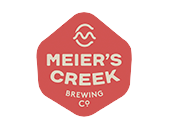Brewing great beer is traditionally a slow and multi-pronged process. While it doesn’t take the years that wines and liquors like whiskey require, beers take several weeks to produce, even after you’ve already sourced your ingredients. The timelines can vary: an NEIPA may ferment for one or two weeks, while a double IPA requires three weeks for fermentation. The full brewing process for lager stretches even longer at eight weeks.
Managing this complex schedule of fermentation times, brew dates, and material operations is challenging enough. But balancing the books with a manual brewery accounting spreadsheet process can feel just as slow. If you want to see your craft brewery grow its production or simply have less overhead or lost product due to unclear accounting, it’s time to make brewery data collection and analysis a priority in every facet of your business.
That means taking a hard look at your current analytics and any processes tied up in manual data collection and old-fashioned spreadsheets. Keep reading to perform a quick check that your brewery accounting spreadsheets are doing the bare minimum. Then consider how switching to a more comprehensive, modern accounting and data analytics solution can streamline your business.
3 Areas You Need to Track Across Your Brewery Accounting Spreadsheet Tool
Brewery accounting extends far past financials. Your business is actively managing ingredient inventory, staggered production to meet forecasted demand, ongoing sales channels, TTB reporting, and more—all on top of financials. To be successful, you need a comprehensive, reliable system.
- Operational Tracking Factors
To stay operational, breweries must track many metrics that change throughout the course of every business day. This includes:
- Incoming sales volumes
- Batch production
- Costs of Goods Sold (COGS)
- Fermentation and processing schedules to manage and minimize costs
- Inventory levels for ingredients, bottles, labels, packaging materials, and other goods
- Finished goods inventory
Losing track of these measurements for even a day can lead to costly decisions based on flawed data—and it can also lead to delays and decreased brand reputation.
- TTB Reporting Requirements
For breweries in the US, TTB reporting is an essential aspect of business management. New breweries need to manage aspects such as original qualifications, setting up their brewer’s bond, getting their formulas approved, and ensuring labeling is compliant with applicable requirements. Even once that is all complete, breweries undergo regular audits and must comply with TTB reporting requirements, including:
- Filing operations data quarterly
- Filing excise taxes quarterly or annually
- Proving compliance with taxes
This process can be laborious, especially if you are making do with manual spreadsheets and older document management systems.
- Essential Forecasting Data
While it’s vital to measure the activity of everyday business across each of your departments, it’s just as important to build accurate forecasts for the weeks and quarters ahead. Without accurate forecasts, you may find yourself with too much product during the slow season or too little product during the busy season.
Related: How to Start & Manage a Brewery Taproom
However, manual financial models can only help you assess the data you intentionally feed into the spreadsheet. It can’t alert you to potential errors, uncover new trends that can dramatically impact your business, or measure your likely progress toward established goals.
Traditional Brewery Accounting Spreadsheet Documents Are Outdated
While your business may be able to make do with accounting spreadsheets in basic business processes, they simply aren’t built for the needs of today’s breweries. Even worse, many breweries are making due with printouts, information on white boards, and tribal knowledge in employees’ heads—all without backups or a plan for if legacy employees leave. In fact, many businesses find that they waste hours every month managing forecasting, risk assessments, and product quality reports with manual methods. These are all important tasks that every brewery must stay on top of, but modern, integrated software allows for the same control and oversight with fewer hours wasted compiling data, fixing errors, and drawing reports.
Why You Need to Shift to More Modern Data and Accounting Options
Many breweries default to spreadsheets because it’s the way business has been done for decades. However, the pitfalls of these platforms make business processes inefficient and can even jeopardize your ability to grow or leverage data to make data-driven decisions.
Data Errors Are Expensive
Spreadsheets for doing business require extensive manual effort. Data needs to be exported, imported, cleaned, and slotted into exactly the right fields for your team to have accurate insights. However, spreadsheets are prone to hazards like:
- Broken formulas in cells
- Incorrect data due to human error
- Being overwritten
- Requiring manual human intervention for updates and reports
- More human errors due to misclicks and misunderstanding
- Lost legacy knowledge due to turnover—if the original author of the spreadsheet leaves the company, it could start to fall apart
Clearly, these hazards can send your management system spiraling into inaccuracies and less than informed business decisions.
Breweries in Competitive Markets Need Near-Real-Time Insights
Breweries face a highly turbulent business cycle. Just managing the oscillating schedules of different IPAs and fermentation needs can make robust automations and data management a business necessity. Seasonal trends come and go, prices of raw ingredients change, and active batches or in-store inventory can fluctuate at a moment’s notice. Having a data lag of a day or even just several hours can jeopardize your business’s ability to respond quickly to changes in the market, especially during the busy season. Some of the advantages of switching to faster data processing and analytics capabilities include:
- Faster TTB reporting
- Real-time inventory cost accounting
- On-time accounting for EOM requirements, closing the books, and managing financial forecasts
- Better inventory management
- Less frustration, as all teams have access to the same numbers at the same time
The right system can avoid the previously mentioned hazards while improving communication and accuracy across your brewery and streamlining multiple processes.
Modern Platforms Provide More Efficient Tech—Like Smooth Integrations and More Intuitive Dashboards
Spreadsheets can be unintuitive, lacking the user-friendly features that make moving through multiple processes easy. Whether you have a small staff that’s constantly on their feet or a growing team that is still learning the ropes, it’s vital that you have a business management platform that’s equipped with the latest tools and is easy for everyone to use properly.
Related: Take The Next Step in Brewery Record-Keeping
Old spreadsheet programs don’t have prebuilt reports that meet your industry’s demands, and they don’t have customizable dashboards that display near-real-time data in easy-to-understand formats. Consider switching to a platform that lets you immediately see product status, revenue milestones, and your most important metrics at a glance.
In addition, the best modern tools can ‘talk’ to the rest of your tech stack through a diverse array of APIs, so you can integrate your data alongside Shopify, QuickBooks, Xero, Square, and other business-critical tools. This can eliminate missing numbers and columns of revenue and expenses that don’t add up. Opt for a platform that remains the single source of truth for your data while simultaneously interacting with all the tools you need for procurement, online sales, and accounting.
Avoid Emergencies by Employing Automation
Spreadsheets may offer some degree of passive automation. You can program cells with complex algorithms or import raw data to fill in refreshed report templates. But, while these actions can give users new insights when they flip all the switches, spreadsheets can’t trigger new actions by themselves. With modern automation solutions, a specialized business management technology platform can:
- Reorder grain and other ingredients whenever tracked inventory levels reach a designated low threshold
- Reconcile your records without spending hours double-checking data fields
- Alert stakeholders when kegs have been out for 90 days, which significantly improves product quality and consistency
- Track all of the fermentation schedules and needs for different brews
- Perform regular data audits to identify inconsistencies or potential errors
- Minimize double entries with programs that speak to each other constantly through supported integrations
- Reduce costs by minimizing employee time spent gathering records, double-checking data, and managing tasks with an outsourced account
These actions are proactive and continuous, reducing the risk of your brewery having a sudden emergency due to old product or low inventory.
How to Find the Right Technology for Your Brewery
When you want to let go of old accounting processes and move to a more intuitive, comprehensive solution, it’s important to start by selecting the right platform. Consider:
- Is it built for businesses like yours? Breweries have unique needs, processes, and compliance requirements. One-size-fits-all business platforms won’t do.
- What platforms are in your tech stack? Knowing which tools need to interact with your business management solution can go a long way toward helping you find the right platform.
- What tasks do you want to automate most? Tasks like gathering data for TTB reports without spending hours searching, ordering new inventory when levels get too low, and constantly measuring progress against quarterly goals can now be handled by powerful technology, leaving your employees free to handle other work.
Replace Your Brewery Accounting Spreadsheet With a Complete Data Management Solution
Moving away from manual spreadsheets can save your business hours of lost time every month. At Ekos, we’ve designed a business management platform built around what breweries need to succeed. Our platform can automate your inventory processes, integrate with your other systems, be your revenue team’s single source of truth for current data, and provide easy-to-read insights. It’s built for tablets, desktops, and phones, so everyone stays on the same page. Book your demo today to see how much better brewery accounting can be.





